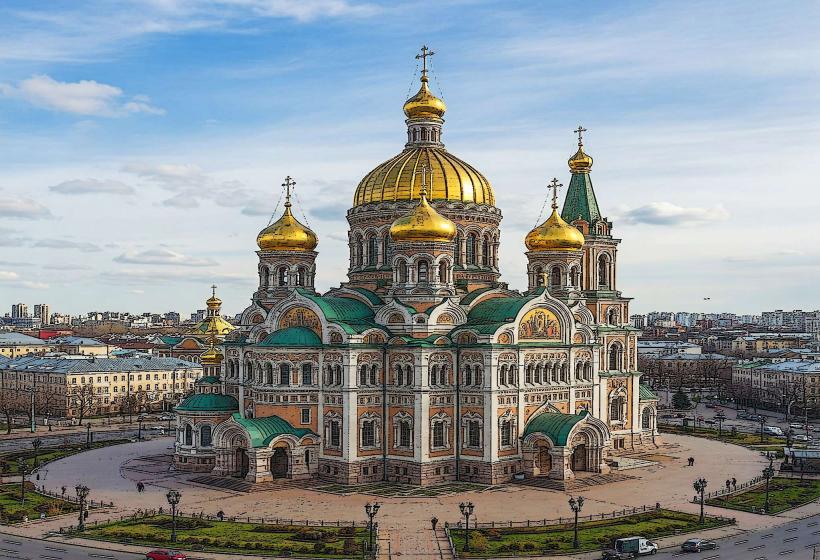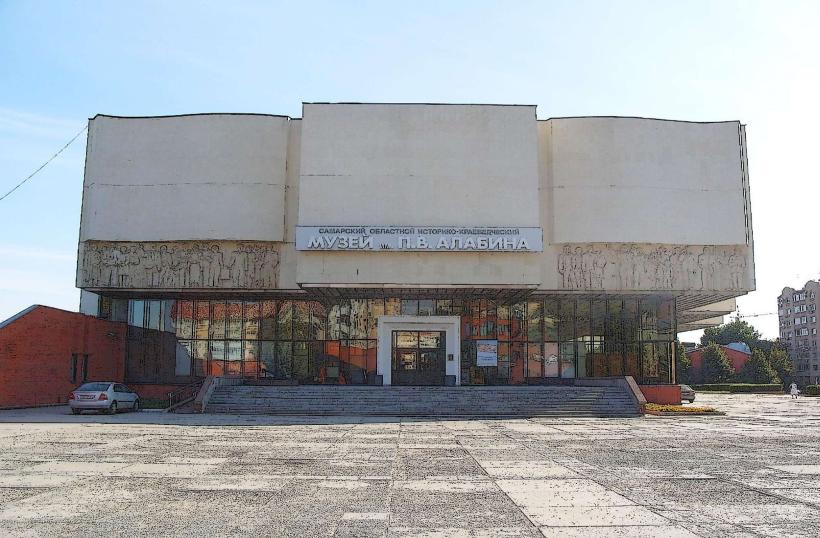Information
Landmark: St. George's CathedralCity: Samara
Country: Russia
Continent: Europe
St. George's Cathedral, Samara, Russia, Europe
St. George's Cathedral is an Orthodox church located in Samara, Russia.
It is a prominent religious structure within the city's urban landscape.
Visual Characteristics
The cathedral is constructed primarily from red brick. Its architectural style is Neo-Byzantine, characterized by multiple domes, arched windows, and decorative brickwork. The main dome is significantly larger than the surrounding smaller domes, creating a hierarchical silhouette. The exterior colors are dominated by the red of the brick, with white detailing around windows and cornices.
Location & Access Logistics
The cathedral is situated at 170 Volzhsky Prospekt, Samara. It is approximately 2 kilometers east of the Samara city center. Vehicle access is via Volzhsky Prospekt. Public parking is available on adjacent side streets, though capacity is limited, especially during services. Public transport options include bus routes 2, 23, 37, 47, 61, and trolleybus routes 4, 6, 15, 16, which stop at the "St. George's Cathedral" stop, located directly opposite the entrance.
Historical & Ecological Origin
Construction of St. George's Cathedral began in 1860 and was completed in 1869. The architect was Ivan Alexandrovich Babanin. The original purpose was to serve as a parish church for the growing population of Samara and to commemorate the patron saint of the city, Saint George.
Key Highlights & Activities
Visitors can observe the interior iconography and architectural details. Services are held regularly. Photography inside the cathedral is permitted without flash. The exterior facade can be viewed from the street.
Infrastructure & Amenities
Restrooms are available within the cathedral complex. Limited shade is provided by the building itself and nearby trees. Cell phone signal (4G/5G) is generally good in this urban area. Food vendors are not typically located directly at the cathedral, but numerous cafes and shops are present along Volzhsky Prospekt.
Best Time to Visit
For interior viewing and photography, mornings between 9:00 AM and 11:00 AM offer softer light. The best months for visiting Samara are May through September, offering milder weather. No specific tide requirements apply.
Facts & Legends
During the Soviet era, the cathedral was closed and used for various secular purposes, including storage. It was returned to the Orthodox Church in the late 1980s and subsequently underwent extensive restoration. A local legend suggests that a hidden underground passage exists connecting the cathedral to the Volga River, though this remains unverified.
Nearby Landmarks
- Samara Art Museum (0.8km West)
- Samara Regional History Museum (1.2km West)
- Chapaev Monument (1.5km Southwest)
- St. Andrew's Cathedral (2.1km Northwest)
- Samara Embankment (2.5km West)










